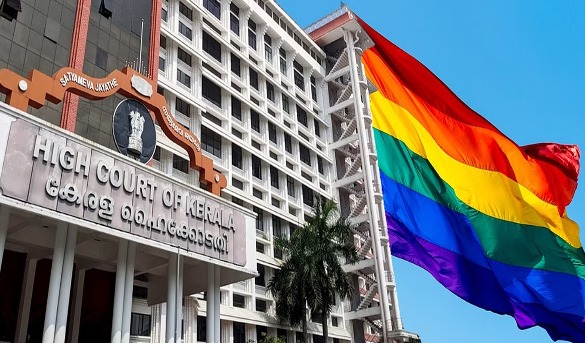
The Kerala High Court has recently upheld the Kerala Administrative Tribunal’s (KAT) interim judgment to the State Public Service Commission (PSC) to consider the job application of a transgender person, one Arjun Geetha.
While dismissing the appeal, the division bench of Justice Basant Balaji and SV Bhatti stated that the Tribunal while passing the order appropriately followed the Transgender Persons (Protection of Rights) Act, 2019.
The Court further stated that the Special Rules, 1984 applicable to recruitment, on which the Kerala PSC relied, do not limit the constitutional validity of the Transgender Act of 2019.
“There is no need to look for reasons to insist on solely following Special Rules. However, the Tribunal’s role is higher, and in reviewing the Government’s and the Kerala Public Service Commission’s decision or inaction, the Tribunal, through a kaleidoscopic view, appreciated the guarantees under the Indian Constitution, as well as the protection provided to transgender people by the ‘Transgender Persons (Protection of Rights) Act, 2019. The order before us is the Tribunal’s interim order, which is being challenged. We do not wish to limit the transgender matter via the lens of Special Rules, on which many reasons are brought and contested before us. The Tribunal’s viewpoint falls within the context of the Constitution of India and the act of Parliament,” the order stated.
The tribunal awarded interim relief to Geetha, a transman (assigned female at birth but identifies as a man) and an aspirant for a job with the State police, on January 24, 2023.
The PSC issued employment notifications for the positions of Sub-Inspector of Police (Trainee) in the Police (Kerala Civil Police) Department, Women Police Constable (Woman Police Battalion), and Armed Police Sub Inspector (Trainee) in the Police (Armed Police Battalion).
The deadline for applying for positions was February 1, 2023.
The applicant applied for the position of Sub-Inspector of Police (Trainee) and was successful, however the notification did not include physical qualifications for transgender people. As a result, Geetha contended that the notification was illegal since it did not provide for relaxed physical requirements for transgender people.
He was unable to apply for the positions of Woman Police Constable and Army Police Sub Inspector (Trainee) because he was told that he was ineligible due to his gender identification, despite the fact that the latter position did not identify any restriction to applying just because he is a transman.
The tribunal passed an interim order in Geetha’s favor, prompting the Kerala PSC to move the current appeal before the High Court.
The Kerala PSC’s advocate, PC Sasidharan, argued that the Tribunal exceeded its jurisdiction by directing the consideration of Geetha’s application, which does not specify who falls under the category of transgender.
The note attached to Armed Police Sub Inspector in the Armed Police Battalion confines consideration to male candidates only, he contended, and so the order is entirely unconstitutional and liable to be set aside.
He further argued that Geetha is obligated by the General and Special Rules of Recruitment, 1984, and that the tribunal, by allowing him, has deviated from the binding Rules.
The Court relied on the Supreme Court ruling in L Chandrakumar v Union of India, which established that the Tribunal had jurisdiction over things such as appointment to service, retirement, and so on.
The Court further stated that the Kerala PSC only considered Geetha’s ineligibility as a transgender person through the lens of either General rules or Special rules.
Following that, the Court stated that denying Geetha an opportunity would be in violation of the Act of Parliament’s protection of transgender people.
As a result, the Court rejected the appeal.




